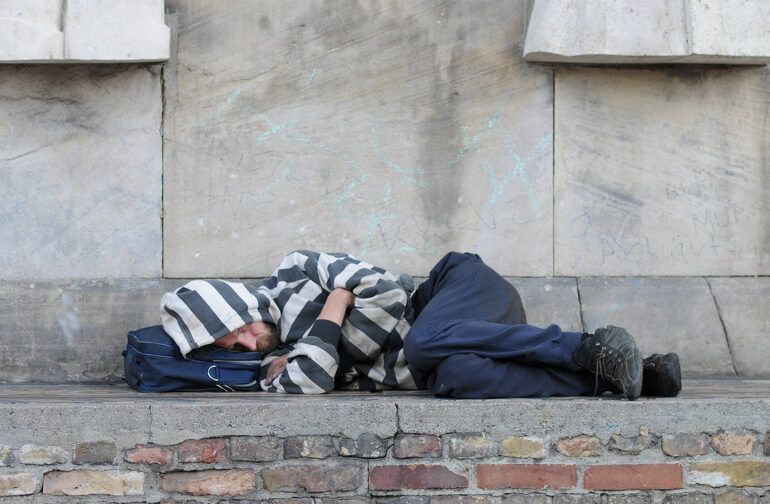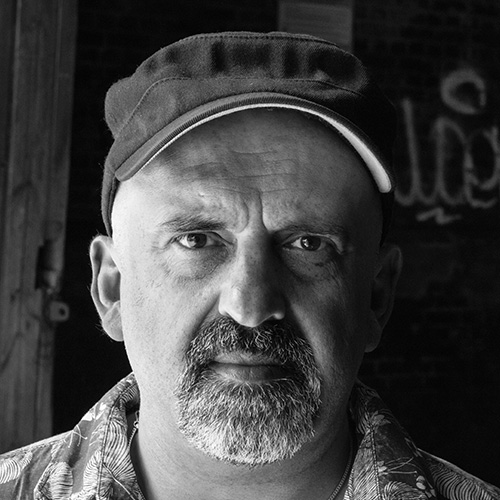Unemployment across Greater Manchester (GM) is above the national average and is contributing to increasing levels of inequality across the region, despite official data showing unemployment dropping to a new 11-year low nationally.
Office for National Statistics figures for October 2015 to September 2016 show the unemployment rate across GM at 5.8% was higher than the UK average of 5%. The unemployment rate across GM was highest in Manchester at 7.2% with only Trafford (3.7%) and Stockport (4.2%) below the national average.
Many of those in work are having to deal with stagnant wages, underemployment, insecure jobs and zero hour contracts. Last year the Joseph Rowntree Foundation reported that 55% of people in poverty in the UK are from working households, a record high.
A report released by Greater Manchester’s Poverty Monitor in 2016 indicated that the inequality gap has widened further, between 2013 and 2014, across the region. More affluent areas such as Trafford and Stockport in the leafy southern boroughs of GM were seeing increases in earnings, drops in the number of households claiming tax credits, better educational outcomes and more jobs created, while the post-industrial towns in the north, particularly Oldham and Rochdale, fared worse on all these measures, resulting in increased inequality between the areas.
The Devo Manc devolution deal for Greater Manchester offers the elected GM mayor an opportunity to address inequality and unemployment in the region. The mayoral elections for GM are on 4 May 2017. This is the second of six questions asked of the candidates. Details of the other questions can be found at the end of this article.
The following question was presented to the four major candidates in the election: Andy Burnham (Labour Party), Sean Anstee (Conservative Party), Shneur Odze (United Kingdom Independence Party) and Jane Brophy (Liberal Democrats):
What are your plans for the economy in regards to reducing inequality and unemployment in Greater Manchester?
Andy Burnham – Labour Party
 “Parts of Greater Manchester – like Manchester city centre and Salford Quays – have been transformed over the last 20 years.
“Parts of Greater Manchester – like Manchester city centre and Salford Quays – have been transformed over the last 20 years.
But other parts of Greater Manchester haven’t had the same investment or seen the same growth in jobs. As a result inequality across our city-region remains too high.
So we need a plan for the economy across all of Greater Manchester. In particular, I want to see a new focus on revitalising our town centres.
Greater Manchester has a proud industrial past and I believe it is time to set ourselves the goal of becoming the undisputed industrial capital of the country once again.
We should start by identifying key sectors for growth and work with our universities and businesses to develop them and support them.
We also need a major programme of investment in our people. I want us to lead a revolution in technical education, putting apprenticeships on a par with university courses. To deliver that, I’m asking the Government to partner with Greater Manchester and work with business to create the country’s first UCAS-style system for apprenticeships, ensuring all young people have the information and support they need.
I will also use the new powers being devolved to work to reduce unemployment, and create more quality jobs and training opportunities across all parts of Greater Manchester.”
Sean Anstee – Conservative Party
 “We know that somebody’s housing status, the community they live in and their health and wellbeing are intrinsically linked to their employment status. In GM over the last 15 years you have got some very positive strengths coming out of the GM economy. It’s growing with the new start-ups created being higher than the UK average, although overall we still economically underperform the rest of the country. This underperformance is not helping people’s ability to be able to get a job, to progress in work, and get promoted and earn more money.
“We know that somebody’s housing status, the community they live in and their health and wellbeing are intrinsically linked to their employment status. In GM over the last 15 years you have got some very positive strengths coming out of the GM economy. It’s growing with the new start-ups created being higher than the UK average, although overall we still economically underperform the rest of the country. This underperformance is not helping people’s ability to be able to get a job, to progress in work, and get promoted and earn more money.
I have responsibility for skills and employment across GM at the moment. There have been around 200,000 people persistently unemployed at any one time in GM over many decades. They are obviously different people, but that overall figure is not changing and that is because we are not creating the space for those not working today to come in and get a job. And those people that are doing what is right: starting a job, supporting their families, getting up really early in the morning, or doing a night shift. They are not getting the opportunity to progress and get promoted.
So across GM the jobs that we have that are at the lower end of the spectrum in terms of pay or productivity, there are too few of them for the people that need them. And you have also got jobs at the higher end of the spectrum that are not being filled by people at the lower end.
This is a pretty complex issue that needs to be fixed if we are to have any chance at tackling inequality. I think there is some merit at looking at low pay across GM. I am not instinctively signed up to paying everybody the living wage, I don’t disagree with it. It has a role to play but what is more important to me is that we tackle the underlying issues of why low pay exists in GM. If we just narrowly apply a solution to everybody that actually doesn’t fundamentally tackle why we have got employers that feel they are unable to pay higher wages, I don’t think we will overcome the underlying issue.
I think we need to have a much more detailed look at peoples’ skills. How people get to work. How we use the apprenticeship levy that comes in next year to support the existing workforce to get promoted. So that we can try and build a GM economy that is tackling inequality across GM.”
Shneur Odze – United Kingdom Independence Party (Ukip)

“In so much as the mayor has the ability to meaningfully influence the local economy, I will be a dedicated champion for small and large businesses alike. Encourage companies to employ local and work closer with the education sector to train for the jobs of the future. More detail will be available in my manifesto… mid-March.”
Jane Brophy – Liberal Democrats
 “Too many people do not benefit from a growing economy because there are barriers in their way. They may lack the right job skills, or lack transport to get to work, or have physical or mental health problems, or lack the skills to write a good CV and perform well in a job interview. We must tackle all of those problems, but we shouldn’t kid ourselves that it’s easy.
“Too many people do not benefit from a growing economy because there are barriers in their way. They may lack the right job skills, or lack transport to get to work, or have physical or mental health problems, or lack the skills to write a good CV and perform well in a job interview. We must tackle all of those problems, but we shouldn’t kid ourselves that it’s easy.
When someone has multiple barriers to entering the job market, the Tory approach of saying ‘if we cut their benefits, they’ll get a job’ simply doesn’t work – it just makes the situation worse. I will focus on breaking down the barriers to open up jobs to everyone.”
Further questions for the GM mayoral candidates
This is the second in a series of six articles that record the GM mayoral candidates’ answers to questions put to them by The Meteor. The other five are on the subjects listed below, which will be hyperlinked when published:
- Housing crisis (click here)
- The health and social care crisis (click here)
- Xenophobia and multiculturalism (click here)
- The environment (click here)
- The GM Fire Brigade (click here)
The answers of the mayoral candidates are presented in the order of the number of votes gained across GM, by their respective parties, in the 2015 general election: Labour Party – 425,237, Conservative Party – 228,295, Ukip – 134,384 and the Liberal Democrats – 52,053. The sudden and untimely death of Deyika Nzeribe, the Green Party candidate for mayor, is the reason for the Green Party not being included. The same questions have been presented to the new Green Party candidate for mayor and will be published separately.
Conrad Bower
Featured image is a composite of creative commons images and images supplied by the candidates


Leave a Reply